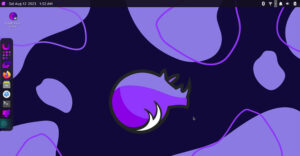
On the heels of a Windows product introduced two weeks ago, Opera Software on Friday released an unnamed beta version of its Linux browser with a range of new usability tools. The back-to-back releases illustrate the strategy of what some analysts said is perhaps the most diverse browser company in an increasingly competitive landscape.
The Norwegian company built beta versions for Windows and Linux systems with similar traits. Both editions tout a simpler user interface and new features like Fit-to-Window-Width, Fit-to-Paper-Width, improved RSS handling, Start Bar for easy access to main features, and automatic update checks. The Linux 8.0 beta, however, does not include speech recognition capabilities of its Windows counterpart.
“A browser is much more than what meets the eye, and to maximize speed, security and page handling, Opera’s Core and supporting code has undergone dramatic improvements based on the strict efficiency requirements brought in from the mobile phone market where Opera is a leading player,” said Opera vice president of engineering Christen Krogh. “In addition, the new Opera browser comes with an update check function to ensure that you will always have the latest version for maximum protection and performance.”
Multiplatform Strategy
The long-awaited Linux version is just another prong in Opera’s multiplatform strategy, according to Jupiter Research analyst Joe Wilcox.
“Most browser companies are multiplatform, with the notable exception of Microsoft,” Wilcox told LinuxInsider. “Opera might be unique in just how multiplatform its approach is, particularly in the cell phone market.”
Indeed, Opera seemingly has something for everyone. Opera Beta is now available for download for Windows, Linux, FreeBSD and Solaris, for starters. Opera for Mobile is one of the company’s best revenue generators, according to its last earnings report, and the company even offers Opera for Home Media, which provides browser technologies for home media applications and devices, and Opera for Verticals, which enable Web solutions for various industries, like automotive, manufacturing and transportation.
Focusing on Features
Even though the Linux version doesn’t offer voice recognition, it does offer plenty of new features. For example, a trash can remembers closed windows and blocked pop-ups, which, combined with Opera’s Sessions feature, helps prevents lost work.
The RSS newsfeeds client has been given a more prominent place and increased usability, according to the company. A clickable RSS icon will appear in the address bar on sites that offer RSS feeds so users don’t have to look around for the link.
Users can also add the news feeds to Opera’s e-mail client where they can store, sort, search, and find information with a click of the mouse.
“Consumers are beginning to expect these types of features,” Wilcox said. “Microsoft is the exception. If you look at Internet Explorer, feature-wise it has been largely unchanged for more than four years now, whereas you have other developers like Opera, Mozilla and AOL/Netscape continuing to release new browser versions with new features. Some of those developers are looking to extend the traditional motif into new areas like RSS.”
Opera said it would release the final version with its full name in early 2005.




















































